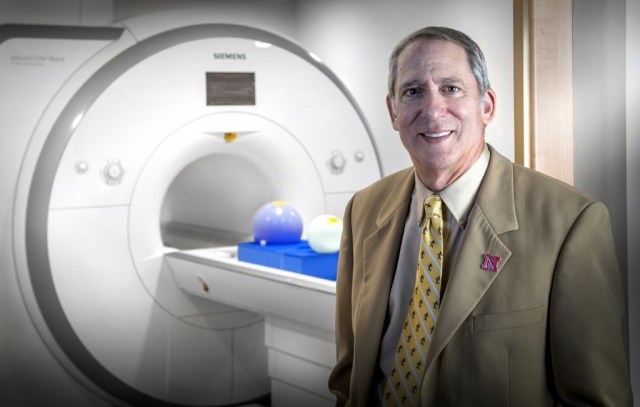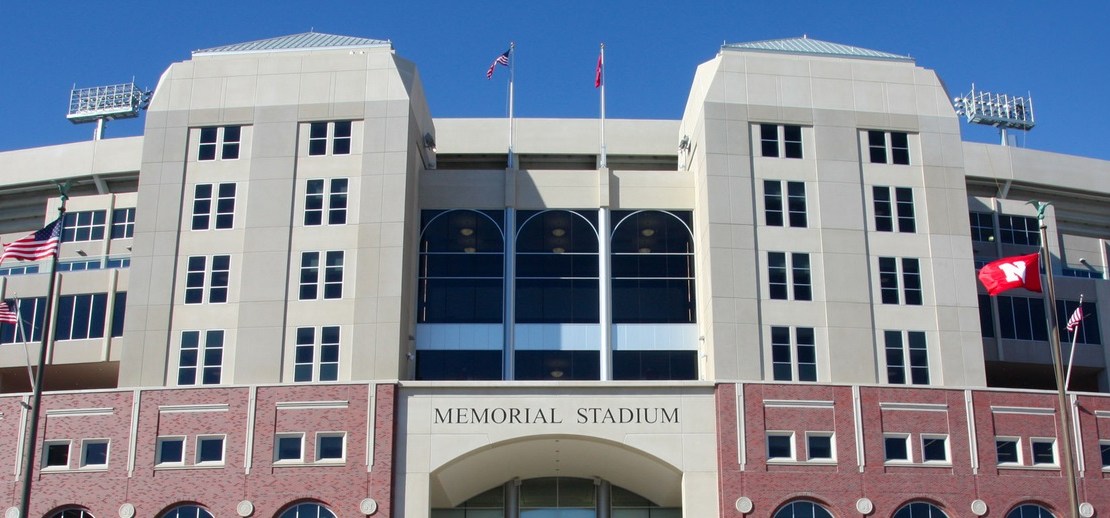BTN.com staff, September 5, 2014
When an announcer yells ?Fumble!? or ?Interception!? during a football game, the fans watching the broadcast respond with joy or frustration, depending on who they?re cheering for. But when they hear ?There?s a player down,? emotions are usually more subdued and somber, no matter which uniform that player is wearing.
With the amount of attention given to the impact of head injuries on football players in recent years, concussions have become a prominent concern for the sport. This has led to efforts by the NCAA and NFL to minimize these injuries with methods such as redesigned equipment and rule changes around hitting and tackling.
Since opening in November 2013, the University of Nebraska?s Center for Brain, Biology and Behavior (CB3) has produced groundbreaking research to understand how the brain works and the impact trauma has on it. The Center?s new facility, located at Memorial Stadium, includes state-of-the art brain-mapping technology and two floors of computer laboratories for performing research and analyzing the data collected.
Concussions have been a major focus of CB3?s work so far, said Dr. Dennis Molfese, director of the CB3 team.
?Between January and mid-May, we tested roughly 1,200 participants - both athletes and non-athletes - in the Center for a number of different studies,? he said. ?When we image the brain, we get an indication of which areas are active when you?re thinking about different events or carrying out different actions. If you have a head injury, the speed of processing can slow down considerably, which contributes to not being able to function as well.?
The testing that?s being done at CB3 is part of a 15-university consortium commissioned jointly by the U.S. Department of Defense and the NCAA.
?The NCAA requires screening of athletes prior to the season to establish a base line measure,? Molfese said. ?If anyone suffers an injury we can determine how bad the injury was and what the time to recover looks like. What we hope to do eventually with that is map out a more active intervention.?
Molfese added that the goal of the research being conducted is to establish standardized concussion-screening protocols that would be used by all NCAA schools.








